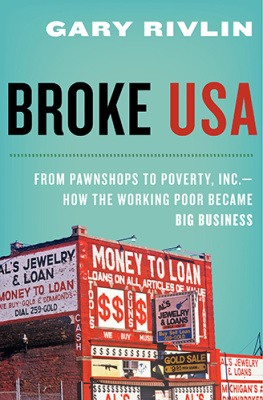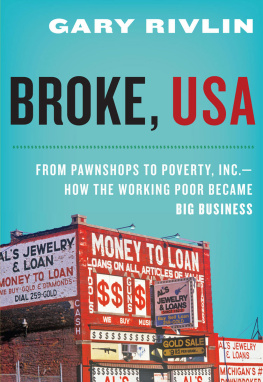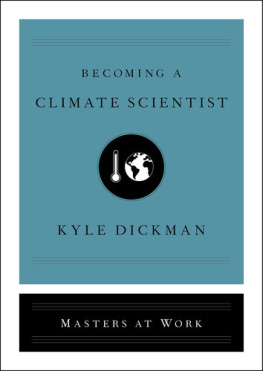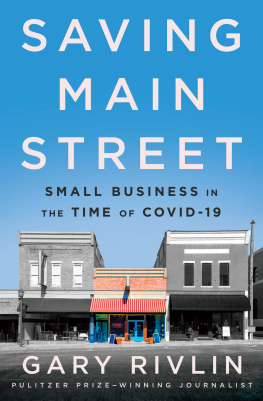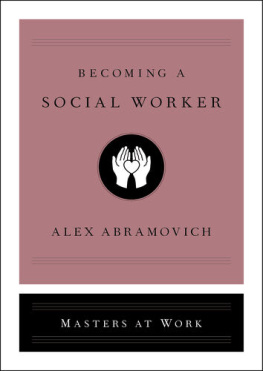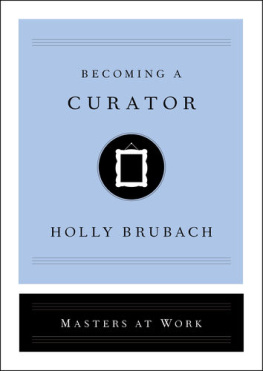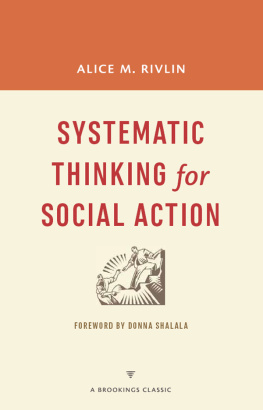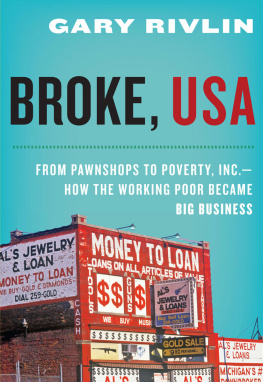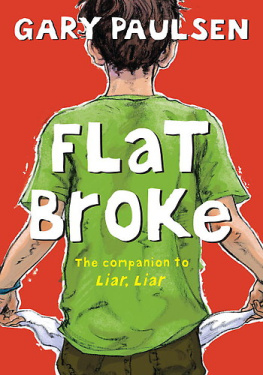Gary Rivlin - Broke, USA
Here you can read online Gary Rivlin - Broke, USA full text of the book (entire story) in english for free. Download pdf and epub, get meaning, cover and reviews about this ebook. publisher: HarperCollins, genre: Detective and thriller. Description of the work, (preface) as well as reviews are available. Best literature library LitArk.com created for fans of good reading and offers a wide selection of genres:
Romance novel
Science fiction
Adventure
Detective
Science
History
Home and family
Prose
Art
Politics
Computer
Non-fiction
Religion
Business
Children
Humor
Choose a favorite category and find really read worthwhile books. Enjoy immersion in the world of imagination, feel the emotions of the characters or learn something new for yourself, make an fascinating discovery.
- Book:Broke, USA
- Author:
- Publisher:HarperCollins
- Genre:
- Rating:4 / 5
- Favourites:Add to favourites
- Your mark:
- 80
- 1
- 2
- 3
- 4
- 5
Broke, USA: summary, description and annotation
We offer to read an annotation, description, summary or preface (depends on what the author of the book "Broke, USA" wrote himself). If you haven't found the necessary information about the book — write in the comments, we will try to find it.
Broke, USA — read online for free the complete book (whole text) full work
Below is the text of the book, divided by pages. System saving the place of the last page read, allows you to conveniently read the book "Broke, USA" online for free, without having to search again every time where you left off. Put a bookmark, and you can go to the page where you finished reading at any time.
Font size:
Interval:
Bookmark:
Broke, USA
From Pawnshops to Poverty, Inc.
How the Working Poor Became Big Business
Gary Rivlin

To
DAISY
and
OLIVER
And in honor of two extraordinary people
who passed away during the writing of this book,
SANDRA ROTHBART COHEN
and
DANIEL SHEAFE WALKER
Wilkins Micawber, in David Copperfield, by Charles Dickens
Contents
Tommys Angel Check Cashers of the World Unite The Birth of the Predatory Lender Going Big Confessions of a Subprime Lender Freddie Rogers The Great Payday Land Rush Subprime City An Appetite for Subprime No Experience Necessary Same Old Faces The Great What-If Public Enemy Number One Past Due Maximizing Share of Wallet Payday, the Sequel Dayton after Dark Borrowed TimeTommys Angel
DAYTON, OHIO, DECEMBER 2008
S eventy-three-year-old William T. Myers lives in a forlorn trailer park on the industrial outskirts of Dayton, Ohio. Pine View Estates, a tightly packed community of about 250 mobile homes, sits along a heavily trafficked commercial thoroughfare battered by a nonstop, noisy parade of dump trucks, cement mixers, and other heavy equipment. Despite its name, Pine View Estates has no pine treesnor are there any views except those of the trailer parks closest neighbors: a metal salvage yard and a large asphalt plant. When giving directions to his home, Myers, who goes by the name Tommy, jokes about the railroad tracks a visitor must cross to reach the modest gray and white aluminum-sided trailer that he, his wife, a dog, and a cat have called home over the past few years. I suppose you can say I live on the wrong side of them tracks, Myers said in a high, reedy voice. He punctuated his crack with a crazed, Walter Brennanlike cackle.
I met Tommy Myers and his wife, Marcia, in 2008, shortly before Christmas. I was still in my car when a small, wiry white man built like a bantamweight fighter bounded out of his trailer and made a beeline for my door. Aint no way you want to park there, he advised in a squeaky voice tinged with the Appalachian twang one hears a lot in southwestern Ohio. His next-door neighbor, he explained, stands at least six foot five inches tall and belongs to the Outlaws motorcycle club. Apparently I was taking the space the man considered his personal parking spot. It might be best to just move your car, he said. I did.
Inside, a spindly, sparsely decorated Charlie Brown Christmas tree sat by the entranceway. There was a living room large enough to fit a couch, a couple of chairs, and a tiny dining room table.
Its not too bad, Myers said.
Easier to clean than the house, Marcia said.
We make do. A large wooden crucifix was nailed to one of the living room walls. A lot had happened in Myerss life over the past ten years but the cross reflected a recent change. A neighbor had invited the couple to a screening of The Passion of the Christ and soon Marcia and Tommy were attending church for the first time since either was a teenager. She made me start going to church with her, Myers said. Its been a blessing ever since.
Tommy Myers has a pleated face and a broad, toothless smile. He had five kids from his first marriage, to a girl he had gotten pregnant shortly before graduating from high school in Dayton, and a sixth if you include the baby Marcia had given birth to less than two months before the couple met. He has worked as a delivery driver for most of his life. For years he drove a truck for Pepsi, then for a beer distributor. More recently he made deliveries for a restaurant supply company. Marcia, whom Myers sometimes calls Momma, is a cafeteria worker at a local high school. My wifes tougher than a crocodile and alligator combined, he said, causing Marcia to roll her eyes. She has a nice smile, a round face, and a curly mop of thick strawberry blonde hair that was somewhat wilted after a long day over the cafeterias steam tables. She knows its best sometimes just to ignore me, Myers said with a shrug, flashing his gums and emitting another whoop. Marcia, who was dressed in flannel sweatpants and a blue Life Is Good T-shirt (a freebie from the school), drifted in and out of the room as we spoke. She hates to even think about the topic that had brought me to their trailer on the outskirts of Dayton that day.
The pair met in West Palm Beach, Florida, when Myers was thirty-five and Marcia was nineteen. Tommy had grown up in Dayton, but after his divorce he arranged a transfer through Pepsi. There he worked with Marcias brother and played with him in a softball league, which is how Myers and Marcia came to meet shortly after she had given birth to a baby boy. Life was good in Florida, Myers said, but he missed Dayton, and eventually they moved north.
Home in Florida had been a trailer, but once in Dayton the couple decided to buy a home they found in a white working-class neighborhood. The house cost only $60,000, but for Myers, who was about to turn sixty, and Marcia, in her forties, it felt like a small palace. There was an upstairs and a downstairs and a finished basement with a washer-dryer. The place had three bedrooms, or four if you included the utility room that seemed a wild extravagance after so many years fitting their lives into a cramped double-wide. They had a decent-sized backyard, where Marcia liked to tend to her plants. The monthly payment was $526 including property taxes and insurance. They painted their new home white and, because Marcia loved her home team, trimmed it in Miami Dolphins teal.
Myers started thinking about retirement. He would turn sixty-five in 2000 and it would be nice to slow down. But then Marcia got sick and he thought about all the calls he had been getting from a man hes now inclined to refer to, sarcastically, as his guardian angel. He was a salesman for the consumer finance giant Household Finance Corporation, phoning one name on a long list of prospects. By 2001, when the Myerses borrowed $95,000 from Household, this venerable U.S. corporation would rank as the countrys top subprime lender.
H ousehold Finance was established in 1878 by a Minneapolis jeweler named Frank J. Mackey, who sensed the money to be made through loans to people of modest means. Through the late nineteenth century and into the twentieth, banks were conservative institutions that loaned money to affluent citizens at a slightly higher interest rate than they paid those same citizens for their deposits. In the name of reducing risk, they categorically excluded potential customers who had jobs but did not look, act like, or even speak the language of their prosperous, mostly property-owning clientele. So Mackey started loaning money to those heretofore excluded people out of the back of his jewelry store at an interest rate high enough to protect against the increased risk but low enough to remain affordable.
Business was good for both Mackey and his credit-starved customers. The working people who borrowed money from Mackeythe working poor, if we were talking about them todayproved themselves to be a diligent and largely dependable lot. Mackey created a system by which people made regular partial payments on what they owed him. That enabled families living paycheck to paycheck to purchase big-ticket items such as furniture and iceboxes and handle emergencies too great for their weekly paychecks to accommodate. Mackey might have seen himself as doing nothing more ambitious than providing credit to people at the bottom of the economic ladder but essentially he invented the unsecured installment loan. He moved his company to Chicago and, in the 1920s, HFC went public.
Next pageFont size:
Interval:
Bookmark:
Similar books «Broke, USA»
Look at similar books to Broke, USA. We have selected literature similar in name and meaning in the hope of providing readers with more options to find new, interesting, not yet read works.
Discussion, reviews of the book Broke, USA and just readers' own opinions. Leave your comments, write what you think about the work, its meaning or the main characters. Specify what exactly you liked and what you didn't like, and why you think so.

